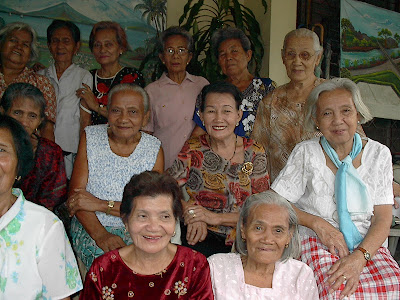Lola is the Tagalog word for grandmother. And on Matimtiman Street in Quezon City, Philippines, Lolas’ House is a community center for a special kind of grandmother. The women of Lolas’ House are survivors of WWII. In South East Asia, 200, 000 young women were taken hostage by Japanese soldiers to serve as military sex slaves. The Japanese called them Comfort Women.
The stories begin in the quickness of the tongue. Formal, unforgiving, the lolas of LILA Pilipina have been taught how to give their testimony –especially to the media. They follow the script. After fifteen years, they can look right into a camera lens and state their name, their age, where they were born. They do it the way prisoners of war are trained to give away their name, rank and serial number. But that is only how they begin because soon afterwards an eye wanders from the camera and glances at me, the one beside the camera, the one behind it. And then the script alters. Sometimes a lola pats me on the arm or leg to make a point; sometimes she grabs my hand as she speaks. Right in the middle of an interview, lolas have been known to lift my palms up to the light and read the signs.
“Only one husband.”
“You only need one good one,” I answer.
“Four kids. Mga-aasawa ka na.” She tells me I will marry soon.
“Kailan, lola?” When?
“Iwan.” She shrugs. “Up to you.”
Sometimes they take my hand to guide me to their scars – places where Japanese soldiers burned them with cigarette butts, scarred them with the blades of bayonets, or marked their skin by dragging them over barbed wire and cobblestones. The stories sink into my bones in just this way. When I tease a lola about her beauty or her youthful sense of humor the camera is forgotten and the voice softens. The lola becomes my lola and the story is a secret that she whispers in my ear.
http://labanforthelolas.blogspot.com/index.html
